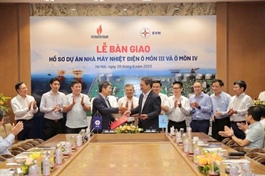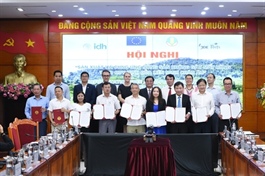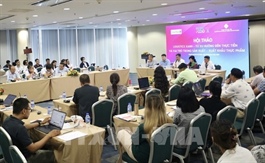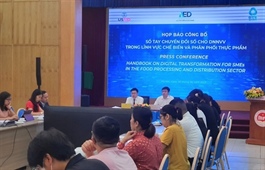Viet Nam set to become Southeast Asia renewable energy leader: conference
Viet Nam set to become Southeast Asia renewable energy leader: conference
With its abundant resources and soaring demand for clean energy, Viet Nam is poised to become a regional leader in renewable energy, a conference organised by Forbes Vietnam heard last Friday.
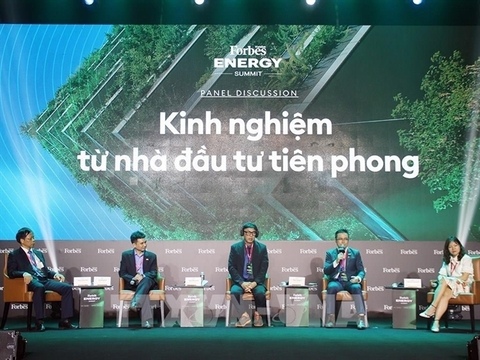
Speakers at a conference on opportunities for investment in renewable energy in Viet Nam organised by Forbes Vietnam last Friday. — VNA/VNS Photo |
Ha Dang Son, deputy director of the Viet Nam Low Emission Energy Programme II (V-LEEP II), highlighted the country’s attractive prospects for local and foreign investors in renewables.
“Viet Nam’s vast renewable resources, growing energy demand and supportive governmental policies are major contributing factors.”
Its ample solar resources offer favourable conditions for investors as do its extensive coastline and favourable wind conditions, he said.
Its well-established agricultural sector generates substantial biomass waste, which can be utilised for energy generation, he said.
The Government approved in May a power development master plan that prioritises renewable energy, he said.
The plan includes an ambitious target to generate 20 per cent of the country’s electricity from renewable sources by 2030.
Experts pointed out the country requires US$135 billion for power plant and transmission grid development by 2030, and over $500 billion by 2050.
They highlighted the need for foreign investment, green credit and domestic private capital to achieve the transformation towards a sustainable energy model.
They also spoke about the major challenges faced by investors such as uncertainty and inconsistency in the Government’s renewable energy policies and regulations.
Trinh Quoc Vu, CEO of a HCM City-based renewable energy company, said the shortage of infrastructure to accommodate the rising renewable energy capacity is another obstacle.
Dang Quoc Toan, chairman and general director of the Asia Petroleum Energy Corporation, said the lack of transparency in the bidding for renewable energy projects is also a critical issue.
Financing remains a challenge despite the decreasing costs of renewable energy technologies, he added.
The complex and time-consuming land acquisition process in Viet Nam is another hurdle for investors in renewable energy projects.
The shortage of skilled professionals and limited domestic manufacturing capabilities escalate project costs and timelines in Viet Nam since developing large-scale renewable energy projects requires skilled labour and robust supply chain networks.
Supa Waisayarat, Viet Nam country manager for Thailand’s Super Energy Corporation, said investors should stay updated on government policies, regulations and incentives related to renewable energy in Viet Nam.





